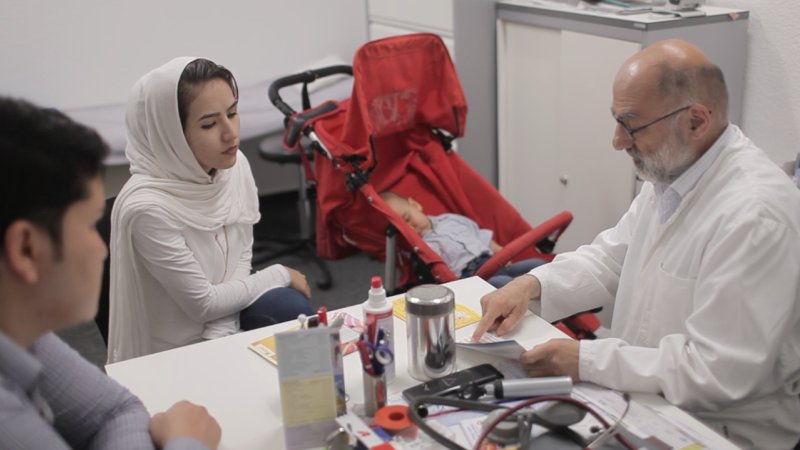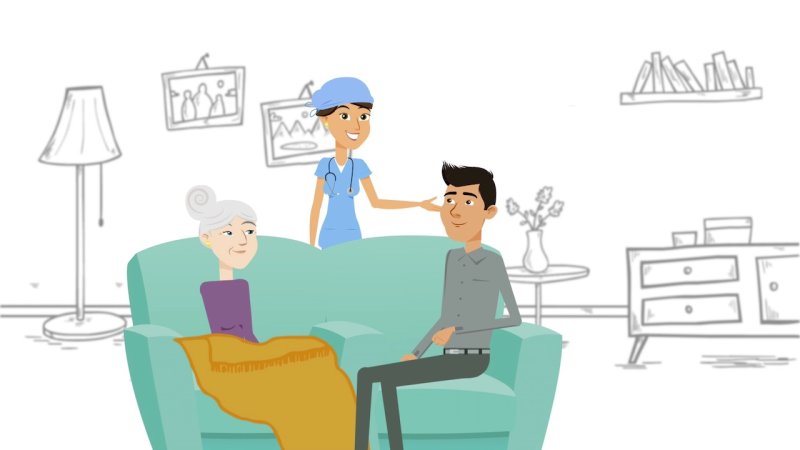Emergencies
Emergencies can happen anywhere, anytime. An emergency is any situation in which people, animals or property are in danger. But who should one call in an emergency? Who can help? Here you can find out who to contact in which emergency. Employees of all emergency call centres speak German. In some cases, you can also ask for help in English or other languages, but there is no guarantee. If you don't speak any German yourself, seek help from a German-speaking person who can call the emergency centre for you.
Employees of the emergency call centres must know the following:
- Where is the emergency?
- What happened?
- How many are injured?
- What are the injuries?
- Who is reporting the emergency?
Health Insurance
Health insurance is obligatory in Germany. If you wish to apply for a residence permit, you must be a member of a health insurance fund. Your health insurance provider, in principle, covers the costs of doctors' visits, hospitalisations, and (often partly) medications. In some cases, the health insurance scheme may take over the full expenses of your medicines.
If your asylum procedure is ongoing or have a "Duldung" or another temporary residence document, you can find the information you need in the chapter "Health Care for Refugees". There, you can also read about the health-related options you can benefit from, in case you do not have any papers.
Healthcare for Refugees
Everyone has the right to primary medical care in Germany. However, the extent of healthcare services and medical treatment you are entitled to depend on your residence status and the duration of your stay in Germany.
Refugees who have a residence permit usually join a health insurance scheme and are therefore entitled to all regular services their health insurance company provides. You can read more about the German health insurance schemes in our chapter "Health insurance".
Refugees who receive benefits - according to the Asylum Seekers' Benefits Act ("Asylbewerberleistungsgesetz")- are also provided with healthcare services. But based on the law mentioned, the scope of medical services provided to them is somewhat limited and access to healthcare is usually passed through the relevant authorities. If your asylum procedure is still ongoing or in case you have a tolerated stay ("Duldung") or have been issued a border crossing certificate ("Grenzübertrittsbescheinigung"), you belong to this group. Asylum seekers who are included in this group are divided into two subgroups based on the length of their presence in Germany:
- People who have been in Germany for less than 36 months, and
- People who have been in Germany for more than 36 months.
Please note: A revision of the Asylum Seekers Benefits Act in February 2024 increased the period mentioned above from 18 months to 36 months. However, if you had already been in Germany for 18 months before the new regulation was introduced, you are protected by a so-called “Bestandsschutz” or “Grandfather clause”– that means you do not have to wait 36 months to receive the benefits of statutory health insurance.
Mental Health
Many of us have experienced (or will experience) stressful situations, fear, violence or helplessness at some point in their lives, whether in their country of origin, en route or in Germany. Processing such experiences and feelings could be very challenging. It is entirely normal to feel exhausted, tense, or not like ourselves afterwards. But it is crucial to take care of our mental health and – if necessary – seek help to process our experiences and possible trauma.
Here you can find out where to seek psychosocial support for yourself or others. There are various types of counselling and therapy that could help.
Nursing Care System
A severe illness, an accident or old age can prevent you from being able to take care of yourself and make you need help with washing, shopping, eating or taking care of yourself. You will not be left alone with such difficulties. If you need help taking care of yourself (be it permanently or for at least six months), you are considered to be entitled to nursing care in Germany. In this case, you usually have the right to support and financial aid provided by nursing care insurance ("Pflegeversicherung").




